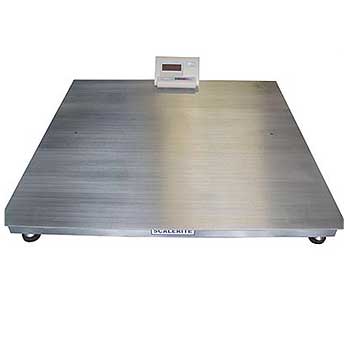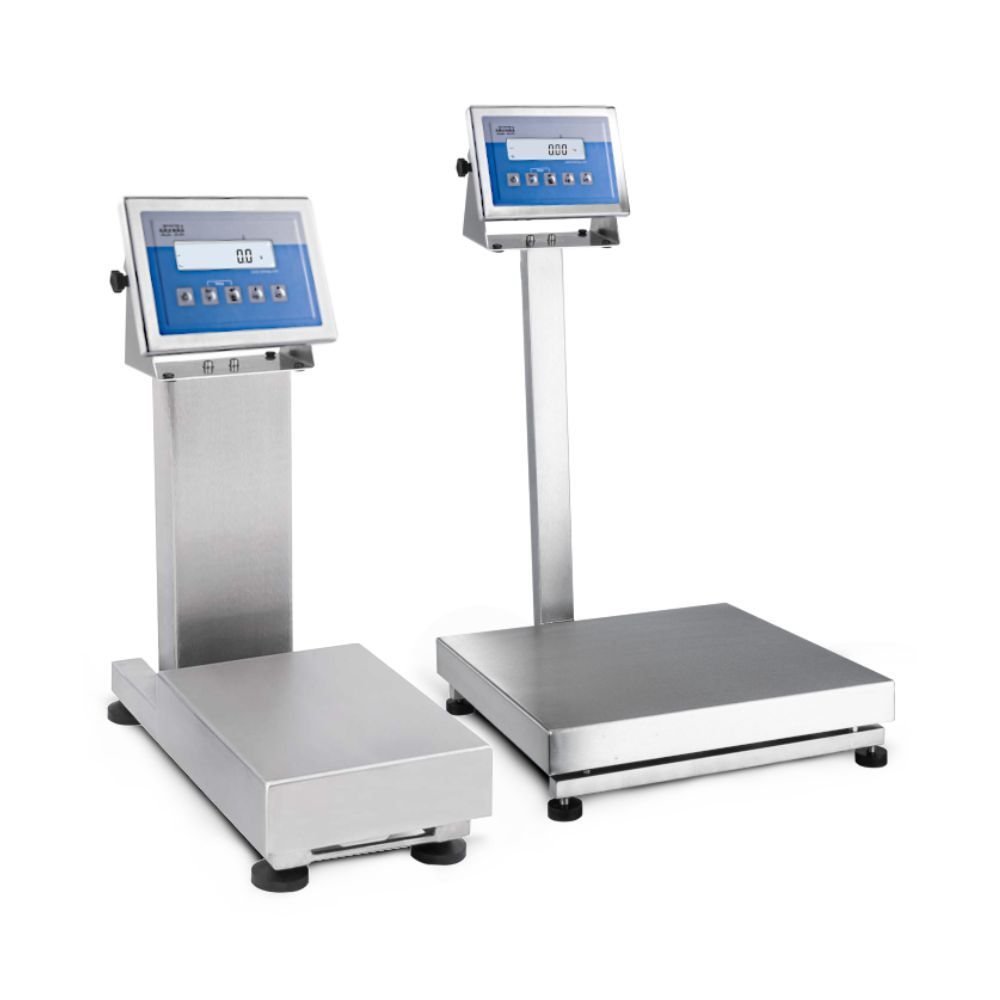The Importance of Regular Calibration for Your Industrial Scales
The Importance of Regular Calibration for Your Industrial Scales
Blog Article
How Industrial Scales Work: A Thorough Review for New Users
Understanding the technicians behind industrial ranges is critical for brand-new users that want to guarantee precision in their measurements. As we explore these elements, one must think about just how these components communicate to enhance performance in diverse industrial applications.
Essentials of Industrial Scales
Industrial ranges are important tools utilized throughout various fields, including manufacturing, logistics, and agriculture, to ensure exact weight dimensions of heavy loads. The basic principle behind commercial ranges entails the conversion of weight into a quantifiable form that can be shown digitally or analogically. These scales employ different devices, such as load cells or mechanical levers, to establish the weight of objects put upon them.

Along with their dimension capabilities, industrial ranges are created to endure severe atmospheres, featuring robust building that resists dirt, dampness, and heavy impacts. Calibration and maintenance are vital to make certain precision, as even minor disparities can cause significant economic ramifications. By comprehending the essentials of commercial scales, customers can appreciate their significance in numerous commercial applications.
Sorts Of Industrial Scales
Different kinds of industrial ranges deal with the varied needs of different sectors, each developed to manage certain weighing tasks with accuracy and integrity. Amongst the most usual types are flooring scales, which are optimal for weighing heavy and cumbersome items. These scales commonly include large platforms and can accommodate palletized items, making them important in storage facilities and delivery centers.
An additional type is bench ranges, which are often used for smaller products in manufacturing and retail settings. They offer exact dimensions for items that call for accuracy, such as chemicals or parts in production line (Industrial Scales). For mobile procedures, mobile ranges supply flexibility and simplicity of transportation, ideal for fieldwork or temporary installations
In applications calling for high-capacity measurements, such as wholesale material handling, crane scales and tons cells are employed. These scales can gauge lots suspended from a crane or other lifting device, ensuring security and precision during operations. In addition, specialized scales like checkweighers are utilized in production lines to keep quality assurance by making sure that items meet weight specs. Each kind of industrial range plays an essential duty in boosting operational effectiveness and precision throughout numerous fields.
How Weighing Systems Job
Evaluating devices are essential components that allow exact dimension of mass across different commercial scales. These systems make use of different concepts of physics and engineering to supply specific weight analyses, necessary for supply administration, quality assurance, and compliance with regulatory criteria.
One usual kind of weighing mechanism is the lots cell, which operates the principle of pressure gauges. When a load is applied, the tons cell warps somewhat, generating an electrical signal proportional to the weight. This signal is then exchanged a legible weight dimension by the range's electronic devices.
Another widely made use of system is the mechanical equilibrium, which employs a system of weights and bars. Industrial Scales. This method counts on the concept of stability, where the weight of the things being measured is balanced against known weights, enabling direct dimension
Furthermore, hydraulic and pneumatic ranges take advantage of fluid dynamics principles to measure weight. These systems make use of the stress put in by a lots to determine weight, supplying high accuracy for huge lots.
Proper Use Strategies
When making use of commercial scales, adhering to correct usage strategies is vital for ensuring accurate measurements and maintaining tools integrity. It is necessary to select the ideal range for your specific application, as ranges differ in capacity and precision.
Prior to evaluating, ensure that the range is put on a secure, degree surface cost-free from disturbances or vibrations. This will help to decrease mistakes brought on by outside elements. Furthermore, calibrate the range according to the producer's specifications before utilize, making sure that it is working properly.
When placing products on his response the scale, distribute the weight evenly to prevent tipping or damaging the equipment. Constantly permit the scale to stabilize prior to taping the weight, as changes may take place during initial placement. For bulk materials, make use of containers that are ideal for the scale size to avoid overloading.
In addition, avoid putting cold or excessively warm items straight on the scale, as temperature level variants can influence accuracy. Last but not least, keep the evaluating system tidy and cost-free of debris to protect against contamination and ensure trustworthy results. By adhering to these strategies, users can maximize the performance and durability of their industrial ranges.
Maintenance and Calibration Tips
Making sure the long life and precision of industrial scales calls for diligent upkeep and regular calibration. A preventive upkeep schedule is essential; it should include regular evaluations to identify damage, particularly on tons cells and other sensitive parts. Regularly cleaning the range's surface area and making certain the surrounding area is devoid of particles will help keep its stability and performance.
Calibration is equally essential and must be executed at normal intervals or whenever the range experiences substantial adjustments in temperature, moisture, or physical displacement. Use certified calibration weights that are deducible to nationwide criteria for precision. Record each calibration session thoroughly to track performance over time and identify any trends or recurring problems.
Furthermore, be mindful of the scale's environment. Prevent placing it near resources of vibration, electro-magnetic interference, or extreme visit this site right here temperature levels, as these aspects can negatively influence dimensions. Train all operators on proper range usage and upkeep methods to make certain consistent efficiency and precision. By adhering to these maintenance and calibration suggestions, users can improve the reliability of their commercial ranges, making certain ideal operation in any kind of setting.
Conclusion

Understanding the auto mechanics behind industrial ranges anchor is critical for brand-new customers that want to ensure precision in their measurements.Industrial ranges are important devices utilized throughout different industries, consisting of production, logistics, and farming, to make certain exact weight dimensions of hefty lots. The basic principle behind industrial scales entails the conversion of weight right into a measurable kind that can be presented digitally or analogically. By recognizing the basics of commercial ranges, individuals can value their value in various commercial applications.
In final thought, comprehending the operation and maintenance of commercial scales is important for making certain exact weight dimensions in various applications. (Industrial Scales)
Report this page